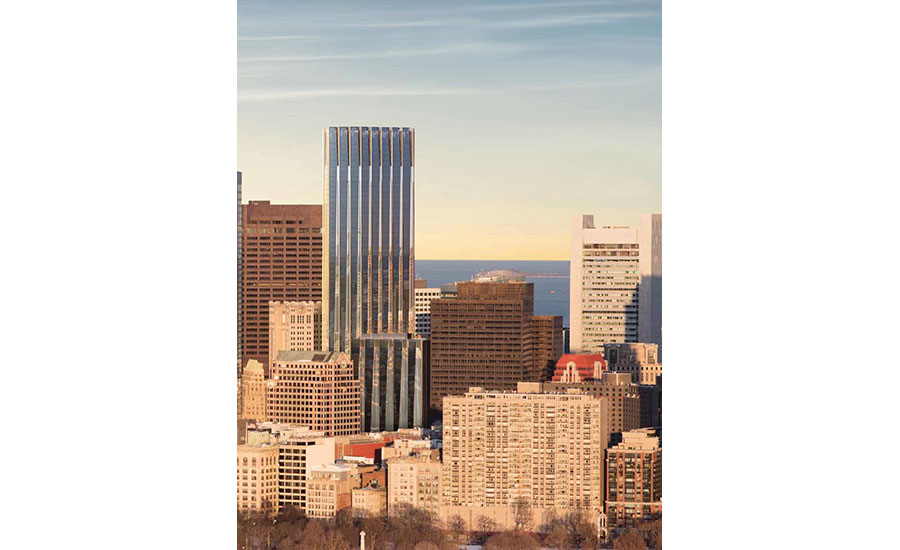Boston’s building boom has stirred up concern about shadows cast by tall buildings that block the sun.
The Boston City Council recently approved Mayor Marty Walsh’s home rule petition to ease a 20-year-old state law that restricts shadows from construction on the Boston Common and the Public Garden to allow for construction of the 775-ft Winthrop Square tower proposed by Millennium Partners.
At stake is $153 million, which Millennium Partners is offering the city for the purchase of a shuttered city garage site in Winthrop Square where it hopes to construct a 775-ft tower. The city would also benefit from $12 million in annual tax payments, thousands in revenues for neighborhood housing and jobs trusts, new affordable housing units in Chinatown, public realm improvements in Boston’s financial district and thousands of new construction and permanent jobs, according to the petition.
Those in favor of more public housing and a more vibrant downtown support the bill while garden societies and historic preservationists who want to protect iconic public spaces from unwanted shade oppose it.
Now the shadow bill heads to the state legislature for consideration and also needs the approval of Gov. Charlie Baker (R) to pass.
If passed, Walsh’s bill would exempt Millennium Partners garage development plans from the shadow law while banning shadow casting from future tall building projects. It would also tighten restrictions on building projects that cast shadows on Copley Square.
In a statement, Walsh said the measure “will revitalize a downtown neighborhood, while generating hundreds of millions of dollars to make needed investments in affordable housing and open space across the city.”
In other tall building news, New England Aquarium officials have been in negotiations with Don Chiofaro about his proposal for a 600-ft tower at the site of the Boston Harbor Garage. The Chiofaro Co. has owned the Boston Harbor Garage since 2007—a valuable asset on the Rose Kennedy Greenway and Boston’s waterfront, according to the Chiofaro Co. website.
After a decade working to gain approval for his development plan, Chiofaro is waiting for approval of zoning rules under the Municipal Harbor Plan for the 42-acre downtown waterfront that would allow him to begin construction, but the aquarium, which has more than 1 million visitors annually has become his “most influential opponent,” according to the Boston Globe. Chiofaro has expressed confidence that a deal would soon be worked out that would allow the aquarium to survive, but neither side has revealed any details due to a nondisclosure agreement.
Under the city zoning regulations, Chiofaro is required to enter into a legal agreement that guarantees against revenue loss during construction and to provide a long-term parking plan, said Tony LaCasse, spokesman for the nonprofit.
“If the aquarium were to lose 20% of its $35 million in annual revenue during the anticipated three or more years of construction of the $3 billion tower, that would total $21 million in lost revenue,” LaCasse said. “We cannot sustain that kind of loss.”
Nearly 30% of visitors, including many families with small children, use the parking garage for convenience, LaCasse said. “Only one station on the Blue Line is nearby so the aquarium is not easily accessible using public transit.”
The aquarium, which relies on hundreds of garage parking spaces, is concerned that demand for parking that would result from construction of the new tower would create problems for long-term parking and public access. “The proposed tower is four times the height allowed under normal zoning requirements of the state,” LaCasse said.
“What we really want is an indemnification plan from Prudential Real Estate,” he said.
The city approved the downtown waterfront plan for Chifaro's tower on March 2. The plan now requires state environmental approval, which LaCasse said is not expected until late fall or early winter.


Post a comment to this article
Report Abusive Comment